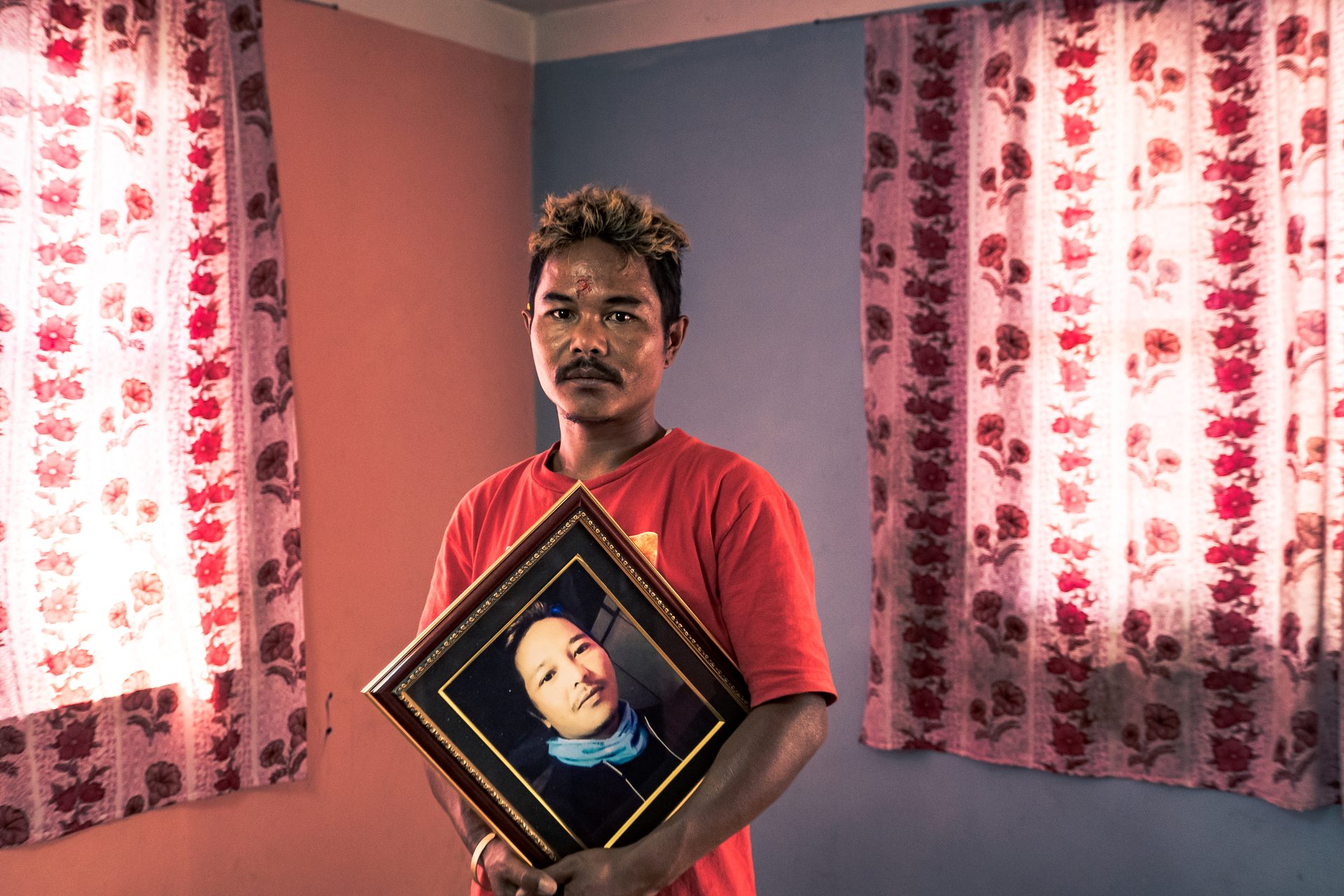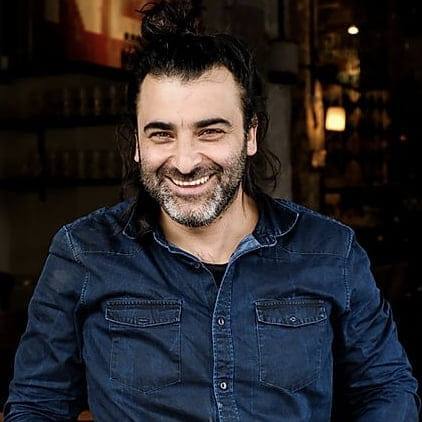FORGOTTEN
Dead labourers lay quietly under football pitches of “Qatar 2022”
Mohamad Badarneh
02 June / July 2022
Qatar is the first Arab country to host the world cup despite the accusations of corruption filed against 3 FIFA officials who allegedly received bribes in return for granting Qatar the right to host the international event. But Qatar denies that.
200 billion US dollars are estimated to be the initial cost of the 22nd version of the world cup, according to Ahmed Bin Gassem, Qatar’s Ambassador in Moscow as quoted by Tass news agency. The human cost though has been colossal, as more than 6 thousand workers from 5 Asian countries have perished in Doha’s world cup construction projects considered by the paper “Qatar’s failure to protect its 2 million-strong migrant workforce”.
From Doha to Kathmandu, Mohammed Badarne, a photojournalist followed the stories of Nepali workers whose lives ended prematurely as they worked on projects for the world cup in Qatar.
Qatar
Nepal
“Do you have any idea what it means to go back to the workplace where your friend dropped dead the day before as if nothing has happened?”
A worker told the photojournalists in Qatar
Sibata Thamang
Sibata Thamang died in
Qatar in 2021, leaving behind an orphaned child with her
sister Sabrity. She has travelled to Qatar in the hope to make
enough money to send her daughter to school.
Qatari authorities claimed that sibata had died in a car
accident. Sibata’s sister claims that her sister struggled
during her time in Qatar to pay back a loan she took to cover her
travel expenses, as well as being duped by the employment agency
that handled finding her a job in Qatar.
Sibata’s family had to rely on charitable donations to afford the repatriation of her corpse, since they don’t have enough money, like 17.4% of poor Nepalis.
Sibata’s sister comforts herself everyday because her sister got to hold her daughter one last time during a vacation she got months before she passed away.
Sibata’s sister lives with the hope of knowing what has really happened to her sister, and wishes to enrol her niece in a private school, to fulfil her dream.
Migrant workers in Qatar are estimated to be in excess of 2 million, most of them come from Africa and Asia, 20 thousand of those have been working construction projects related to the world cup.



Qatar
Nepal
"They became only service providers, we sees them as commodities and not human beings”
A resident in Qatar
Rub Chandra
Rub chandra has died in his sleep, in one of the workers camps in Doha in 2019 due to unknown causes. He used to work in the construction of the Education City Stadium, his wife told the Guardian newspaper that she suspects his death is due to the inadequate living conditions afforded to labourers
The Nepali young man went to Qatar to save money for his son’ schooling and to pay some debts he had
After his death, his wife Nirmala got 7 thousands Qatari Rials in compensation, after the publication of several news stories about his death. Nirmala adds that “initially the company refused to give us any compensation, they said they won’t pay any penny, and claimed that they have done enough after repatriating the corpse and that we don’t deserve any compensation”.
Rub’s Friends helped his wife retrieve the body for his cremation according to their religious traditions, after her husband’s passing away, she decided to leave Kathmandu.
Approximately 7 thousands workers have lost their lives up till now according to ITUC.
Qatar Workers welfare committee has announced in its reports that
3 work related and 33 non- work related deaths were recorded in the
last five years.
Doha
Nepal
"During a traffic quarrel, a western man fought with a native Qatari then he went on his way. I asked myself, would I have made it if I had yelled at a Qatari person? Here I can’t say no to anyone”
A migrant taxi driver talked to the photojournalist
Sujan Lupchan
Sujan Lupchan worked in a company that installs scaffolding in Qatar and died five years after leaving Nepal, he was in his 40s.
Sujan’s death was a surprise to his family who remain unaware of the causes as there has not been a serious investigation and a follow up according to his brother Ganish
Sujan’s mother had a heart attack when she heard the news and died 3 days later, “I lost my family one after another'' Ganish said.
"Abuse is widespread, Migrants often work without pay, and live in poor conditions”. Jorge A. Bustamante; UN. Human Rights Council. Special Rapporteur on Migrants.
According to HRW, Qatari Labour laws and related regulations grant workers on papers some strong guarantees for protection, but few benefit from that due to the “Lack of oversight and poor implementation”.
Many NGO reports point to the harsh work and living conditions, delayed payments, in addition to poor government mechanisms developed to protect them.
Qatar
“Millions of workers who migrated to Qatar for promised economic opportunities did not find ‘dignity and pride’ but were instead subjected to grave abuses”
Minky Worden, Director of Global Initiatives at HRW
Nepal
Shankar Thanmang
Shankar Thanmang used to work as a driver at Al Khor Stadium, north of Doha, before that, he used to be a manual labourer carrying supplies and various other tasks.
Shanker was arrested with other migrants by Qatari Police while watching a ball game between Pakistani and Nepalese workers near a souq.
Shanker had to spend five “harsh” days in prison, saying that “they didn’t allow us to communicate, or even talk”.
The Qatari authorities have swiftly deported him, not even giving him time to pack or collect his money
Qatar
nopin
FORGOTTEN
This investigation was conducted with the support of ARIJ.
Nepal

Mohamed Badarne is a photographer, trainer, and activist. Born in the Palestinian village of Arraba in the Galilee, he got involved in social activism as a teenager. He volunteered in refugee camps and built a human rights movement for Palestinian youths. Until 2012, he earned his living as a high-school teacher and NGO worker.
About the photojournalist
